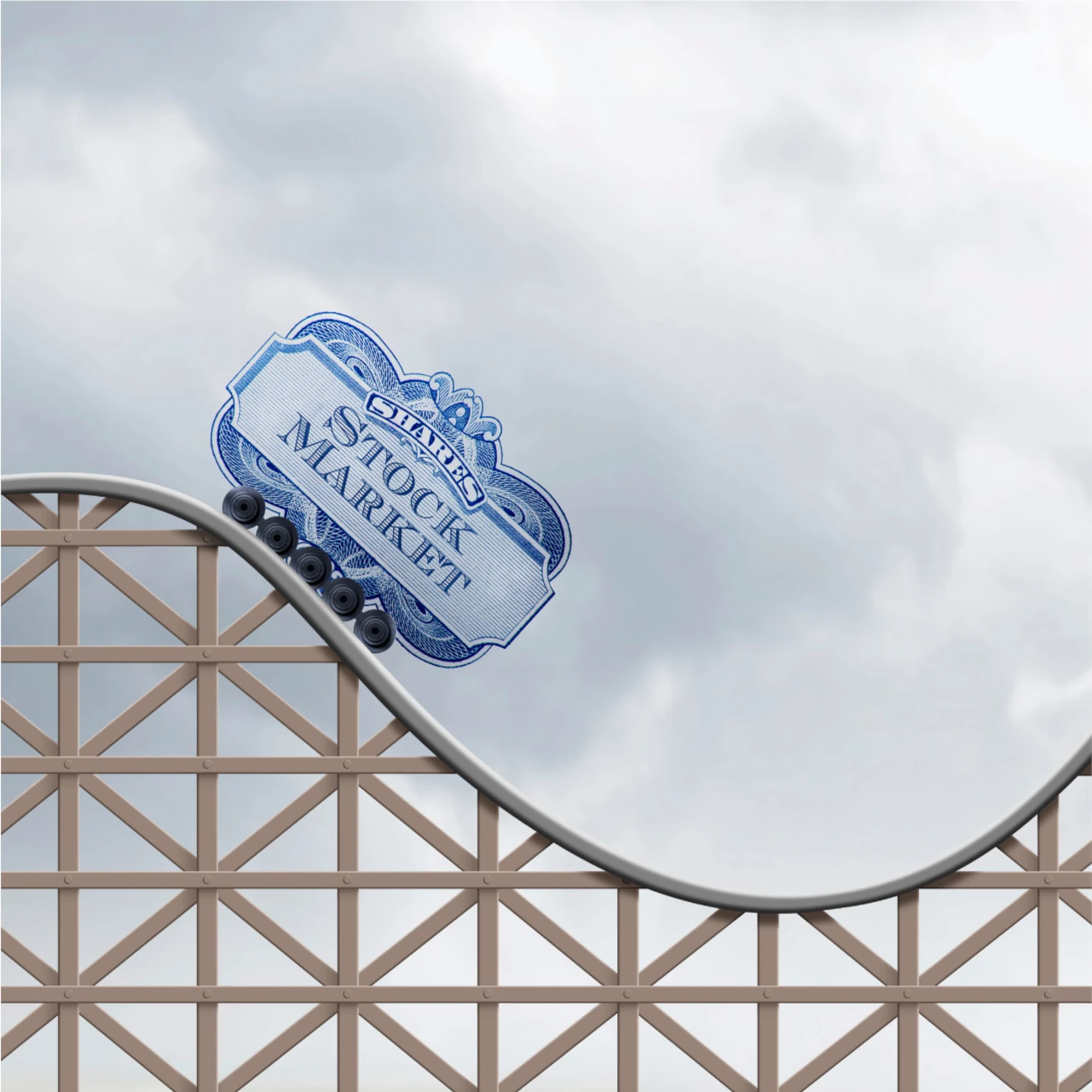Introduction
Miss Market, the enigmatic and capricious mistress of the financial world, is a partner who can be both alluring and unnerving. She has mercurial moods and her dance movements are captivating yet unpredictable. One moment, the tempo is calm and steady; the next, it’s a whirlwind of frenzied movement. The overall display is a complex ballet of numbers, news, and emotions.
While volatility is inherent in stock markets, but after the COVID-19 pandemic, stock markets all over the world have been on a continuous rollercoaster ride.
The Ukraine-Russia war, the Israel-Gaza conflict, trade wars and now India and Pakistan are at the cusp of a war—all these have contributed to heightened uncertainty and volatility in these financial markets.
Market volatility is like the changing weather—sometimes sunny and calm, other times stormy and unpredictable. It’s driven by a constant flow of information and the diverse perspectives of investors interpreting that information in their own way.
Economic indicators, geopolitical events, corporate earnings reports, and even a single tweet can be interpreted by different investors in different ways and can send markets into a tailspin or a rally.
Take the COVID-19 pandemic as an example. The uncertainty surrounding its impact on economies and businesses caused wild swings in stock prices. One day, markets would rally on news of a potential vaccine; the next, they’d plummet on reports of rising cases.
As I sit here, reflecting on the recent movements in the Indian stock market, I'm reminded of the intricate ballet that unfolds daily on the trading floors and in the minds of investors.
For many, market volatility can feel like an unwelcome partner, throwing off their rhythm and creating uncertainty.
The question now is how to tackle this market volatility, what to do with your investments at such times? As investors, we can learn from our experiences and observations, developing a deeper understanding of the markets and our own emotional responses to volatility.
As a long-term investor, I’ve faced my fair share of turbulent times over the years. In this article, I'll write what I've learned and drawn from those "experiences and observations".
Though I don't claim to be an expert who has all the answers, I wish to share a few guiding principles and thought processes that I've developed which help me navigate these volatilities.
The Roots of Volatility
The first thing that I've learned, actually realised, is that volatility by itself is not risk. Risk is when there is a possibility of permanent loss of capital. Volatility is merely price fluctuations because of what the broader market thinks about a company which is not always rational anyways.
But why could markets be wrong? Let’s face it: as investors, we’re emotional creatures. Besides our brain, fear, greed, and anxiety also often drive our decisions, sometimes leading to irrational choices.
The fear of missing out can push us to buy into rising markets, while the fear of loss can make us sell during downturns.
I remember the 2008 financial crisis well, though I was not an investor that time. I was in college and our job placements were hit hard due to it. So I'd read about that crisis in the news everyday. I'd read how so many investors lost by panicking and selling their holdings at rock-bottom prices. Now with hindsight and looking back at all the charts and data, we can see that those who'd have kept their cool and maintained a long-term perspective would've been rewarded handsomely as the market eventually recovered.
Similarly, during the demonetization in India in 2016, markets experienced a sharp decline, only to bounce back in a couple of months as the economy adjusted to the new reality.
There are countless such examples time and again that highlight the importance of staying calm and focused during turbulent times.
Behavioral finance, a field that studies the psychological influences on investor behavior, provides valuable insights into why we make the decisions we do. By understanding concepts like loss aversion (the tendency to fear losses more than we value gains) and herd behavior (the tendency to follow the crowd), we can develop strategies to counteract these biases inherent inside us and make more informed choices.

The Psychology of Investor Behavior
As long term investors, we should just accept that our portfolios are bound to face turbulence from time to time. This volatility is a parcel of the deal- we have to bear the mercurial nature of Miss Market.
But volatility by itself is not inherently bad. In fact, it’s also what creates opportunities for investors.
The key is to understand the factors driving the volatility and then to respond to it thoughtfully rather than react impulsively.
I've alluded to this in some other articles in my blog as well, when you buy shares of a company, you make money out of the following two ways-
- By the company itself- the company distributes its profits in the form of dividends or share buybacks, or in the extreme case of liquidation.
- By trading- selling your shares to someone else for a higher price.
Of the above two, it is because of 1 or the future expectations of 1 that 2 exists in the first place. Otherwise,
the stock market would be nothing but a giant Ponzi scheme where old investors traders get money from new ones and then after sometime they get money from other new ones.
As a long term investor, I focus on the 1- the company itself. Instead of reacting to short-term market fluctuations, I focus on the underlying fundamentals of a company or investment. If the factors influencing volatility in stock markets (geopolitical tensions, wars, pandemic etc.) are going to affect the business of the company then only I'll reevaluate my investment position.
Maintaining a long-term perspective is not easy when prices crash around you. This requires discipline and patience, but history and logic both suggest, it pays off in the long run.
Diversification is another crucial strategy. By spreading investments across different asset classes, sectors, and geographies, I can reduce my exposure to specific risks.
Investors who were heavily concentrated in tech stocks in the late 90s or real estate stocks in 2008, many of them suffered significant losses when the bubble burst. Before the crash, both these sectors had lots of euphoria.
Such a kind of frenzy or euphoria can often lead us to make significant investments in just one particular sector. I try my best to avoid that. It’s all about not putting your eggs in one basket no matter how tempting it is—simple, but effective.
The Role of Emotional Intelligence
Emotional intelligence is a superpower in investing. It helps us manage our emotions and make more rational decisions.
By being aware of our biases and emotional triggers, we can develop strategies to mitigate their impact.
For instance, having a clear investment plan can serve as a guide, keeping us focused on our long-term goals and preventing impulsive decisions.
This plan might outline your goals, risk tolerance, and strategies for managing market volatility.
But emotional intelligence can be fostered through many other things as well like yoga or meditation, listening to songs or even gardening (like in my case). It is about what brings you peace and calm so that you can think rationally.
Another aspect of emotional intelligence is the ability to detach from the noise. Markets are full of distractions, from sensational headlines to social media hype.
Staying informed on key developments and news that could impact our invested companies and yet keep ignoring the market noise is not easy. In my case, not obsessively checking the news or ticker every minute has certainly helped me a lot.
Conclusion
The dance of markets is a spectacle of complexity and emotion. While volatility can be unsettling, it’s also an inherent part of investing.
With the right mindset and strategies, we can navigate this dance with confidence.
By maintaining a long-term perspective, diversifying our investments, and cultivating emotional intelligence, we can better understand the rhythm of the markets, overcome our own biases and make more informed decisions.
Happy investing!

Comments